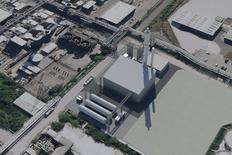- The £16.7m project includes a £4.2m grant from BEIS.
- The plant will capture up to 40,000 tons of CO2 annually, reducing emissions by 11%.
- Operations are scheduled to start in 2021 at the Northwich site.
- The project supports the UK's net zero carbon target by 2050.

Project Overview
Tata Chemicals Europe (TCE) is set to build the UK's first industrial-scale Carbon Capture & Utilisation (CCU) Demonstration Plant at its Northwich site. The plant will capture and purify carbon dioxide from power generation emissions to produce high purity sodium bicarbonate, a critical raw material for various industries.
Investment and Funding
The £16.7 million project is funded by TCE, with a £4.2 million grant from the Department of Business, Energy & Industrial Strategy (BEIS) through the Carbon Capture and Utilisation Demonstration (CCUD) Programme. This initiative supports the UK Government's Clean Growth Strategy and its target of net zero carbon emissions by 2050.
Operational Details
Scheduled to commence operations in 2021, the CCU plant will capture up to 40,000 tons of carbon dioxide annually, reducing TCE's carbon emissions by 11%. The captured CO2 will be used directly in the manufacture of sodium bicarbonate, primarily for the pharmaceutical and hemodialysis sectors.
Technological Impact
The project represents a world first in capturing and purifying CO2 from power generation emissions for industrial use. It aims to demonstrate the viability of CCU technology and pave the way for further applications in decarbonizing industrial activities. The plant will be designed and delivered by TCE in collaboration with a leading supplier of CO2 capture and purification technologies.
Environmental Benefits
By deploying CCU technology, the project will reduce emissions and support the growth of TCE's largest export product, high-grade sodium bicarbonate. This initiative aligns with TCE's ongoing efforts to reduce its carbon footprint, including investments in steam turbines and state-of-the-art boilers at its subsidiary, British Salt.

